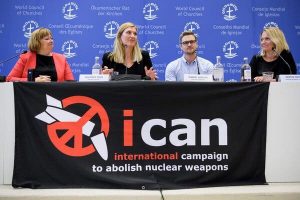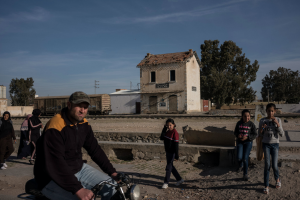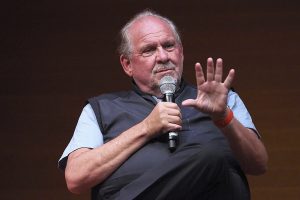Police will be banned from participating in New York City Pride events, as organizers say they are seeking to “create safer spaces” for “marginalized groups.”
Under the new policy, announced Saturday by NYC Pride, corrections and law enforcement exhibitors will not be allowed to march in the parade or participate in other events for at least five years.
Coordinators of the world’s largest gay pride celebration also said they would take steps to reduce NYPD presence at events, by hiring private security and first responders.
“The sense of safety that law enforcement is meant to provide can instead be threatening, and at times dangerous, to those in our community who are most often targeted with excessive force and/or without reason,” organizers said in a press release.
“NYC Pride is unwilling to contribute in any way to creating an atmosphere of fear or harm for members of the community.”
Millions of members of the LGBT community flock to the city in June for the world’s landmark gay rights celebration.
The event began in 1970, to commemorate the Stonewall Uprising a year before, when patrons of a Greenwich Village gay bar rioted against NYPD officers, who were conducting a raid of the then-illegal establishment.
The recent nationwide reckoning of police violence inspired Heritage of Pride, the group that produces the event, to reexamine its relationship with the police — who were previously invited to march in the parade as it became more mainstream.
“This announcement follows many months of conversation and discussion with key stakeholders in the community,” said NYC Pride Co-Chair André Thomas.
Detective Brian Downey, 41, president of the NYPD’s Gay Officers Action League, said hundreds of members of the police department have been marching for nearly four decades in good faith and solidarity with the community.
“GOAL was embraced by the community because it was viewed as agents of change. This was progress, it wasn’t contention,” Downey told The Post Saturday night.
Downey said some distrust of the police is “justified,” but his organization is about “building bridges,” both in the community and at One Police Plaza.
“Having the courage to go into the institution as a gay or queer person… you’re going in there with that struggle that is your own identity and you’re bringing it inside that system,” Downey said.
“I have used a position of considerable power … to open the door for other people that don’t share my same experience and give them a voice at the table.”
GOAL said it will continue its advocacy on behalf of the community, despite the move to ban them from Pride events.
Momentum for the ban had been growing in recent years. In 2019, activists planned an alternative Pride parade in New York that excluded cops. Festivities were canceled last year over coronavirus concerns.
“The NYPD is just as bad as it ever was, even if it’s better for some of its employees on the inside,” Reclaim Pride Coalition co-founder Natalie James said at the time. “So to me that means the NYPD should not be recognized at Pride.”
In 2017, Pride Toronto banned cops from marching in its parade, after lobbying by Black Lives Matter protestors, according to The Daily Hive.
The NYPD’s GOAL organization reportedly invited Toronto law enforcement to march side by side with them in the Manhattan parade.
In 2025, NYC Pride will review its police participation ban, NYC Pride said. Until then, the NYPD will “provide first response and security only when absolutely necessary as mandated by city officials,” organizers said.
The move toward private security raises a host of high stakes liability and insurance issues, and police sources tell The Post that parade organizers are ill equipped to protect millions of revelers in the Village.
“I don’t know what the end game is here,” Downey said. “When you create an echo chamber and you take a dissenting voice other than the voice of these activists, who don’t want reform they just want abolition.”
“How does this work? I think this was a poorly made decision and the execution was even poorer,” the gay NYPD leader said.




